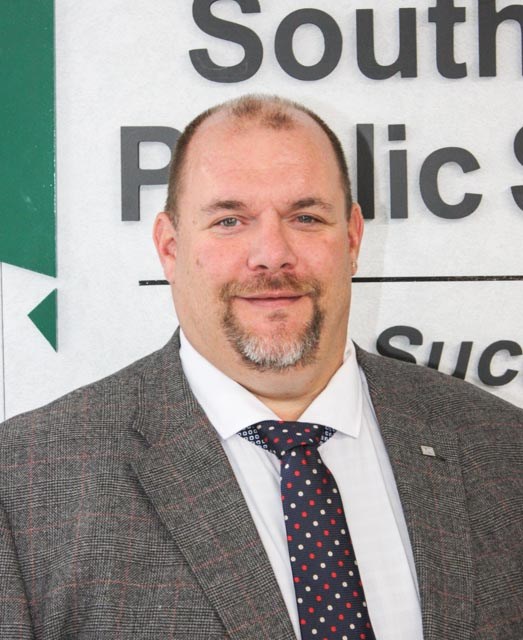The planning and process of introducing and implementing mental health programs within the South East Cornerstone Public School Division was explained to the board of trustees on Nov. 21 when they met in the school division’s conference room in Weyburn.
Aaron Hiske, Cornerstone’s superintendent of education, made the presentation, explaining how the need was brought to the forefront due to a number of events that occurred in the region during the 2017-18 school year.
Hiske said the age of the students who were affected was 12-18 years, and that regardless of grade configuration or location, all schools across the division were impacted, with one female student losing her life due to self-harm, as did four adults from school communities.
Another 15 were hospitalized as a result of self-harming activities and “these are only the instances we are aware of,” Hiske said.
As a result, a six-to-eight-hour program was established for delivery in Cornerstone classrooms and will be mandatory in the first year of delivery. The program has two levels, with one level aimed at younger students from early years to Grade 8 and the second level for those up to Grade 12.
Hiske explained that to guarantee delivery of the program in its first year, it will be injected into the English language classes, since that is one subject that is mandatory at all age and grade levels. He added it was made easier for the educators who were assured of assistance in delivery of the program as well as in the assessment and marking processes.
“‘Here’s a sample of how you may assess and mark,’ we told them, and we made it as easy as possible to comply, adapt and implement,” he said. “We have partner agencies in social services, police and mental health professionals, so there is a systemic response to increase awareness.”
Board chairwoman Audrey Trombley also noted, “the program is also putting in support for teachers and their families.”
Hiske said a wellness committee has been struck to assist with the implementation and advancement of the program that will probably be rolled out within health and wellness classes, or some similar format in the future, but for the first year, the English classes were seen as a vital cog in the delivery process.
“Despite the great work of our counsellors and community support agencies, our students needed more,” said Hiske.
The feedback that followed the development of a pilot teen mental health program last school year allowed administration to know more context was needed for teachers to deliver an eight-lesson curriculum.
The course now offered out of the University of British Columbia requires between six and eight hours to complete at either of the two levels. The sessions for younger students up to Grade 8 is designed for teacher and students to call on a seven-module course to provide a foundation of mental health literacy, including effective strategies to use in education settings as well as one’s own life experiences.
For the older students, the course assists their teachers in improving their mental health literacy by engaging with, and learning how, to teach the mental health curriculum through comprehensive, interactive teaching strategies that encourage participation, communication, relationship-building and critical thinking.
The Mind Up program for the earlier years is a 15-lesson program delivered by teachers that is science-centric and evidence-based with over 10 years of research behind it, Hiske said. It is grounded in four pillars of neuroscience, positive psychology, mindful awareness and social-emotional learning.
It provides a discovery experience along with daily care practices and drives positive behaviour, improvement in learning and scholastic performance while also increasing empathy, optimism and compassion.
The advanced program includes multiple resources for teachers and provides evidence-based online modular resources to increase understanding of mental health and mental disorders, decreases the stigma of mental illness and enhances help-seeking efficacy among students and teachers.
Hiske said a format for infusing the curriculum at various levels is being rolled out in a format delivered to all English instructors to implement with some being brought forward during the second semester, while others will be taught in both semesters.
He told the Cornerstone board members, “pieces were built in just for us.”
In response to questions from Estevan board representatives Jim Vermeersch and Shari Sutter, Hiske said the English teachers are working the mental health delivery time slots into their general programs, so no additional time is assigned for it and he assured them the teachers are qualified and the program is self-contained.
Lynn Little, the director of education for Cornerstone, added that different systems are teaching the program to serve their needs and “what we’re seeing is not atypical across the province.”
“I think that what we’re doing here is important, and that is helping teens especially address this issue,” said sub-division 6 trustee Elwood White, during a discussion session that followed the more formal presentation.




